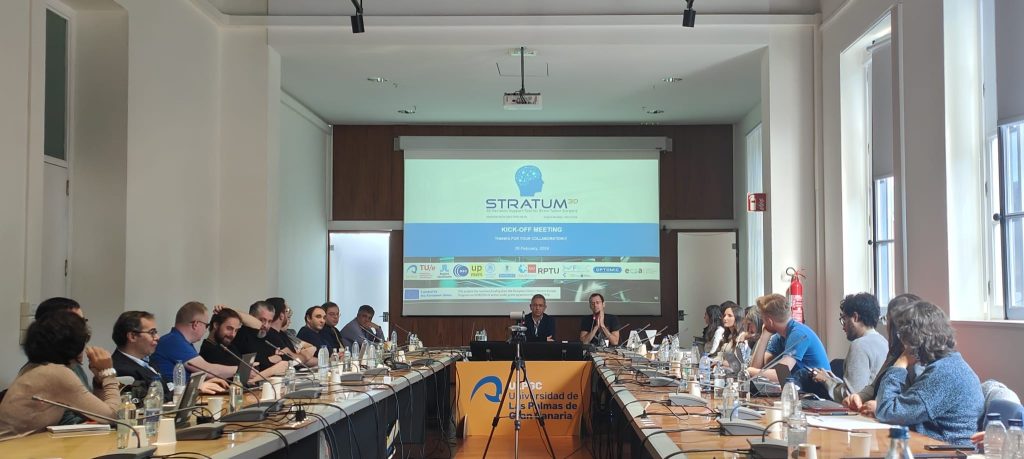The ULPGC celebrates the kick-off meeting of the European STRATUM Project

On February 26 and 27, the Institutional Headquarters of the University of Las Palmas de Gran Canaria (ULPGC) held the kick-off meeting of the project STRATUM (3D Decision Support Tool for Brain Tumor Surgery), financed by the European Commission through the Program Horizon Europe, with a total of 10.7 million euros. It is coordinated by the ULPGC research institutes The Institute for Applied Microelectronics (IUMA) and University Institute of Biomedical and Health Research (iUIBS).
The ULPGC professor, Dr. Gustavo Marrero Callicó, project coordinator, and Dr. Himar Fabelo, deputy coordinator of the project, led this meeting, where the bases and objectives of the project were established. During the meeting, the main partners of the consortium discussed the roles and responsibilities of each entity involved, as well as the deadlines and objectives of the project.
The partners participating in the consortium to develop the project include the Canary Islands Foundation Health Research Institute of the Canary Islands (FIISC) belonging to the Canary Islands Health Service (Spain), the Technische Universiteit Eindhoven (Netherlands), the Karolinska University Hospital (Sweden), the Barcelona Supercomputing Center (Spain), the company SAS UPMEM (France), the University of the Studies of Pavia (Italy), the Polytechnic University of Madrid (Spain), the 12 de Octubre University Hospital (Spain), the Rheinland-Pfalzische Technische Universitat (Germany), the company OPTOMIC (Spain) and the European Citizen Science Association (Germany).

This meeting marks the beginning of a collaborative and interdisciplinary process for the development of a 3D imaging system using artificial intelligence technology, with the objective of reaching a level of technological maturity TRL7 (Complete system/prototype demonstrated in an operational environment). This innovative tool is expected to provide neurosurgeons with the ability to make informed and accurate decisions during surgical interventions, thereby improving the care and treatment of patients with brain tumors.

